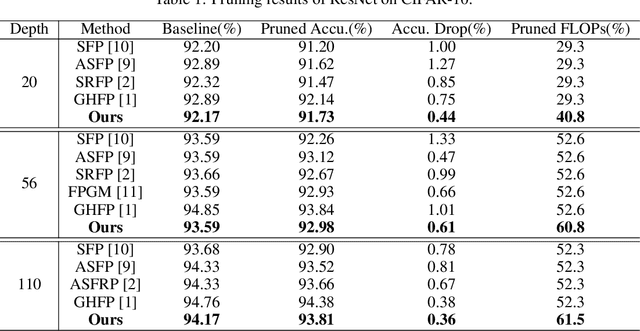Asymptotic Soft Cluster Pruning for Deep Neural Networks
Paper and Code
Jun 16, 2022



Filter pruning method introduces structural sparsity by removing selected filters and is thus particularly effective for reducing complexity. Previous works empirically prune networks from the point of view that filter with smaller norm contributes less to the final results. However, such criteria has been proven sensitive to the distribution of filters, and the accuracy may hard to recover since the capacity gap is fixed once pruned. In this paper, we propose a novel filter pruning method called Asymptotic Soft Cluster Pruning (ASCP), to identify the redundancy of network based on the similarity of filters. Each filter from over-parameterized network is first distinguished by clustering, and then reconstructed to manually introduce redundancy into it. Several guidelines of clustering are proposed to better preserve feature extraction ability. After reconstruction, filters are allowed to be updated to eliminate the effect caused by mistakenly selected. Besides, various decaying strategies of the pruning rate are adopted to stabilize the pruning process and improve the final performance as well. By gradually generating more identical filters within each cluster, ASCP can remove them through channel addition operation with almost no accuracy drop. Extensive experiments on CIFAR-10 and ImageNet datasets show that our method can achieve competitive results compared with many state-of-the-art algorithms.
 Add to Chrome
Add to Chrome Add to Firefox
Add to Firefox Add to Edge
Add to Edge